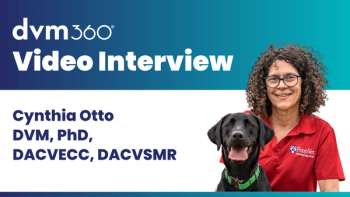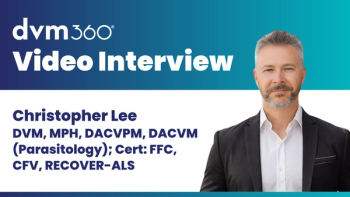
What is the Process of Clinical Reasoning?
Rather than just having a little compact piece of information, the process of clinical reasoning provides a much more holistic view of why this animal is presenting.
Tom Cardy, BSc, BVetMed, PhD, MRCVS, a lecturer in veterinary neurology and neurosurgery at Royal Veterinary College in London, England, explains how the process of clinical reasoning helps veterinarians better diagnose cases.
"If you're a veterinarian in a clinic and times are getting stressful, the owners staring at you, you're having trouble examining the animal, and you've got a particularly challenging neurology case, we tend to do 1 of 3 things. We pattern recognize, which is where we look at the case if it fits something we've seen before we give it the same diagnosis. That has errors associated with it, because many diseases will have the same clinical signs and unless you're an experienced clinician you don't have this great data bank of cases to draw on. So pattern recognition is one a strategy that's perhaps not the best. We also do what I call fishing, which is where we run a whole load of diagnostic tests they could be blood tests, radiographs, ultrasound; it makes us feel better that we're doing something, the owner sees us that we're doing something, but equally, unless you understand the results of those tests— whether they're normal or abnormal—it's still not going to get you any closer to a diagnosis. And finally one of the things we do now, in with increasing accessibility to advanced imaging, we just scan stuff. We put it in the MRI scanner or the CT scanner, it gives us these beautiful three-dimensional images but similarly unless you know what you're looking for and unless you know what's normal or abnormal, it's not going to help you with your diagnosis.
So, what we're now trying to teach certainly at the Royal Veterinary College where I we're now trying to teach certainly at the Royal Veterinary College where I come from is a more problem orientated approach and to use clinical reasoning and clinical reasoning is the cognitive processes that you go through in diagnosing and treating your patient, but you can do that much more easily if you construct a problem list that the patient presents with. And these problem lists will always be based on the pathophysiology of the disease. I guess the take-home message is that if they use a problem based approach it takes more information than just a physical exam, more information than just a neurologic exam, it uses information that the owner can provide on the presentation and the progression of the disease, and it takes into account the animal's Sigma as well.
So rather than just having a little compact piece of information you have a much more holistic view of why this animal is presenting. And that definitely aids in coming up with differential diagnosis."
Newsletter
From exam room tips to practice management insights, get trusted veterinary news delivered straight to your inbox—subscribe to dvm360.






